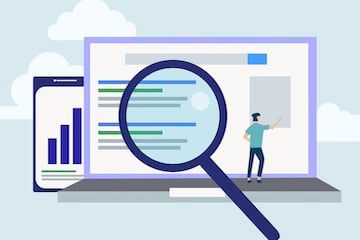Google announced its site reputation abuse policy in March 2024 as part of a major update to its organic search algorithm.
Google defines website reputation abuse as “when third-party sites are published with little or no first-party oversight or involvement (editorial) and the purpose is to manipulate Search rankings by exploiting first-party website ranking signals.”
News sites that publish recommendations from third parties are examples of abusers, according to Google. To date, these reportedly include CNN Underscored, Forbes Advisor, and WSJ Buy Side.
Google has since expanded the policy to include no third party content with or without supervision.
Manual penalty
Google enforces compliance with its reputation abuse guidelines through manual interventions. If a site is deemed abusive, Google will notify the verified owner of a manual penalty in Search Console.
The penalty does not apply to the entire site, only the part that hosts third-party content. To date, only sites that receive manual intervention notices are penalized.
But in an update last month, Google said it could algorithmically detect “whether a part of a website is independent or significantly different from the main content of the website”. When detected, Google says it will treat the section as a separate site and not apply the authority of the main site.
Therefore, expect Google to track and enforce site reputation abuse algorithmically.
Recovery
There is no recovery from this punishment. If your site hosts third-party content in a way that Google defines, there is no way to fix it, not even with editors or reviewers.
Additionally, moving the penalized part to another subdomain or subdirectory will make the situation worse, as Google explains in the circumvention section of its “Spam Policy,” stating:
Circumvention includes, but is not limited to:
- Using existing or creating new subdomains, subdirectories or sites with the intent to continue to violate our policies.
- Using other methods designed to continue the distribution of content or conduct that is intended to violate our policies.
Google adds:
If a site continues to engage in actions designed to circumvent our spam or content policies for Google Search, we may take appropriate action, which may include limiting or removing eligibility for some of our search features (for example, Highlights, Discover), and taking a broader action on Google Search (such as removing more parts of the site from search results).
The best response for penalized sites is to develop traffic-generating content that doesn’t automatically come from third parties.
How to prepare
So far, Google’s penalty for abuse of a site’s reputation only applies to the problematic parts, not the entire site. However, I imagine this will happen across the web if policy becomes part of the underlying algorithm, like what happened with helpful content updates.
So now noindex your third party content. It can take months and years to recover from updates to Google’s core algorithms.










